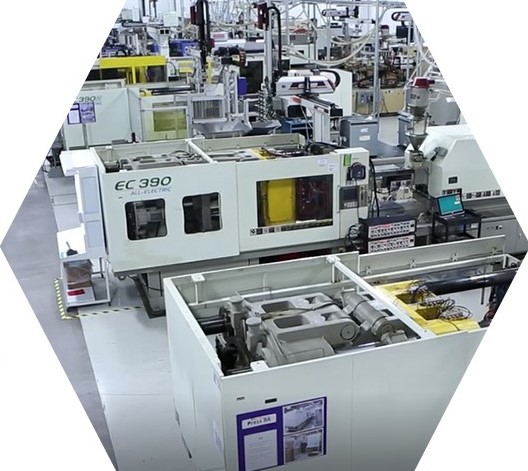
ISO 13485
All-Plastics opened its doors in 1964 manufacturing industrial injection molded parts for the Oil & Gas market. Today there are many markets we serve in the Industrial Sector. Our state-of-the art manufacturing capabilities and value-added secondary operations have made us a premier source for development of some of the most well-known industrial products on the market.
Our experts provide Project Management solutions from Concept to Operational Excellence, including full program documentation and component traceability.
Industrial Sectors and Markets We Serve:
All-Plastics works with a variety of industrial industries to provide plastic injection molding solutions and help create, design, and mold custom applications and parts. Some of the industrial markets we serve are:
Our experts provide Project Management solutions from Concept to Operational Excellence, including full program documentation and component traceability.

Injection Molding Capabilities and ServicesRequest a Quote
Production solutions that increase quality, security and provide cost advantages for the Industrial Market are:
Our clients range from businesses in the construction and automotive industries to the pharmaceutical and medical markets. To meet their diverse needs, we tailor our injection molding solutions based on their specific requirements. We ensure efficient production of uniformly high-quality industrial plastic components, utilizing industry best practices to maintain uniformity even with complex designs.
We work with various plastics, depending on our client’s requirements and the intended application of the components to be produced. The following are some examples:
ABS is a thermoplastic terpolymer composed of acrylonitrile, butadiene and styrene. Heat- and impact-resistant, ABS exhibits excellent toughness yet is relatively straightforward to machine. It softens when heated to approximately 221 °F and hardens when cooled.
Because of its durability, versatility and affordability, ABS is used to create a wide variety of products, such as:
HDPE is a petroleum-based thermoplastic polymer that has excellent tensile strength and a significant strength-to-density ratio. Its impact resistance, high melting point and resistance to chemicals make it a popular option for those who need to mass-produce food and beverage containers quickly.
To achieve the best possible results in HDPE molding, it must be heated to its melt temperature, between 400 °F up and 430 °F. At this point, HDPE is easier to mold into the desired product.
HDPE comes in rigid and soft forms. Everyday items made from HDPE include:
Made from ethylene, LDPE has a lower density than HDPE. Unlike the latter, which is opaque with linear molecules, LDPE is transparent with branched molecules. It’s soft, lightweight, impact-resistant and impervious to hazardous materials and moisture.
LDPE is a durable and resilient industrial plastic, but it is not rigid like HDPE. It is not recommended for products that require structural strength. It is mostly used to make bags for groceries, frozen food, dry cleaning and the like, as well as:
Strong yet lightweight, PET is a thermoplastic polymer better known as polyester in the textiles industry. It is considered a “green plastic” as it melts and liquefies when exposed to very high temperatures instead of burning as other plastics do. It is also fully recyclable.
Because it is shatterproof as well as strong, PET is widely used to make bottles and containers for beverages. Unlike other forms of plastic that may burst or break under the pressure of carbonation or during transport, bottles made from PET will remain intact.
PET is also used for:
Food packaging materials
Interior finishing of vehicles
Containers for products that require preservation, such as cosmetics and medicines
To learn more about our industrial plastic and injection molding solutions, contact us.